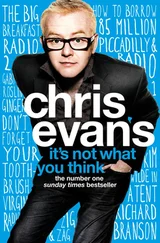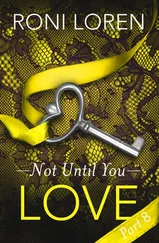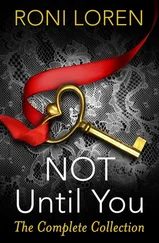I wondered why The Rich Man had gone to hell. Was it because he was a bad man or because he was rich? Had the poor man gone to Abraham’s bosom because he was poor or because he was good? The preacher did not say. My father was poor. And like Lazarus, he was likely to be the one found in Abraham’s bosom.
‘It’s all stolen money,’ he often said with a voice stuffed full of pride, whenever he saw yet another person who had built a house or bought a new car. ‘How could he possibly afford that on a civil servant’s salary? At least ‘I’ll always be remembered for my honesty. Nobody can say I stole a farthing.’
I did not think anybody would have been blind enough to accuse my father of stealing public funds. Anybody could see that he did not have any farthings. Uncle Boniface, on the other hand, was foul-smelling rich. Popular gist held that he was a 419er, living large off funds he scammed from unsuspecting foreigners who believed the yarns he spun through emails and faxes. Each time his name was mentioned, my father would go into a tirade.
‘I don’t know why you people even mention his name,’ he would say to my mother. ‘You people need to realise that such a person is a disgrace to have in one’s family.’
The pregnant woman beside me brought out a small bottle of water from her bag. She sipped in small, hushed gulps.
The preacher returned to Luke and to the deep voice. To further illustrate The Rich Man’s sorrow, he knelt down on the cement floor, placed one of his palms upwards in the other, and switched to a high-pitched voice. He mimicked how The Rich Man had begged Papa Abraham to allow Lazarus to fetch him a drop of water and how the patriarch had declined. He described how The Rich Man had requested that Lazarus should go on an errand to warn his family of this place. For one split second, I assumed that he had been there while it all happened.
Suddenly, the preacher’s voice evaporated. The electric fans stopped swishing, the lights stopped shining, and the hall became still as death. One of the omnipresent hitches with the National Electric Power Authority supply had struck. In keeping with their more popular acronym – Never Expect Power Always – power had been cut. Some of the men seated in the front row rushed out while the preacher attempted to continue his sermon undeterred. I heard the men pulling the generator starting cord somewhere outside the building. The engine whirred and then died almost immediately. They tried it again, and again, and again. Each time it fired up, each time it was quenched. Had they run out of fuel? Had the engine gone kaput? The men returned to the church hall. One of them approached the preacher and whispered. At that, he stepped away from the pulpit and continued his sermon – without the assistance of any amplifier.
The pregnant woman beside me brought out some white tissue paper from her bag and wiped her lips and her hands, making sure to work the tissue into the cranny between each of her fingers. She resumed fanning herself with the plastic fan.
‘My brothers and sisters,’ the preacher beseeched us, throwing his arms out in front of him like the antlers of a mighty stag, and shaking his head slowly from side to side, ‘verily, I say unto you: In this world, all that really matters is Jesus. Forget about money, forget about fame, forget about all that this world has to offer. All you need is to focus on making heaven. Nothing else is important.’
Despite myself, I laughed. Did this holy man really know what he was talking about? My family was almost destitute, my mother-in-law-to-be had run out of patience with me, my father was wearing an expensive illness. Yet here he was telling me to forget about money and the world. Was this man joking?
The pregnant woman beside me poked a podgy, egg-white-perfumed finger into my shoulder.
‘Let me pass,’ she said. ‘I want to use the toilet.’
I looked at her protruding belly, which was positioned threateningly close to my face, and struggled with the urge to ask her why she did not simply dip into her carrier bag and extract a potty? Grudgingly, I muffled my inner imp and moved my knees aside to allow her past. Her stout thighs got stuck in front of me. Eventually, I had to stand for her to go through.
I did not hear the rest of what the good man said, and not just because the preacher was not using a microphone. Each time there was a pause, I assumed that the sermon was over. Still, he continued. It was when the congregation raised its voice in communal prayer that I realised that, finally, he was finished. He returned to his seat in the front row just as the pregnant woman returned to her seat. The offering basket was going round now, and again, I had to stand to let her through. When the raffia basket arrived in front of us, she dipped into the very same black carrier bag and brought out a green naira note. She mangled it into a tight ball in the palm of her right hand before tossing it into the basket. I watched the container sail past. I had nothing to give.
Towards the end of the service, another man stood up and took the place of the preacher at the front.
‘Are there any people worshipping with us for the first time?’ he asked. ‘Please indicate by raising your hands.’
Some hands in the congregation shot up in the air.
‘Please can you take an extra step by standing up for us to recognise you?’
The congregation was asked to make the visitors – those of them who had stood up – welcome. They did so by walking up to them and shaking their hands, as if congratulating them. The young man beside me sabotaged my plan to ignore the ceremony. I had neither raised my hand nor stood up, but he turned to me and shook my hand almost as soon as the call was given. By some mysterious means, he had identified that today was my first time.
‘Welcome, brother,’ he said.
In total, there were about thirteen of us who had been identified. A lady – the same one who had welcomed me into the church that morning – ushered us all into an adjacent room where a man with an even thicker Bible than the one the preacher had used, came and stood in front of us.
‘I’d like to thank you all for honouring our invitation to join us for such a special time this Sunday morning,’ he began. ‘We’re so glad to have you with us at Revival Now or Never Ministries. We are-’
I got sidetracked by the sleeves of his white shirt. They were grimy, almost as black as the corners of his fingernails. His trousers were frayed at the hems, and some threads dangled from two buttons on his shirt.
Somebody handed out some forms for us to fill out our addresses and phone numbers, so that they could keep in touch with us during the week. We did not have a telephone at home. I lied about my house address. This was clearly not the place where my problems would be solved.
‘Please don’t forget that you’re invited to fellowship with us anytime you want,’ he concluded. ‘You’re always welcome. Please consider this place as your home and us as your brothers and sisters.’
On my way back home, I pulled the flyer out of my pocket and crumpled it into a tight ball. I flung it into a nearby bin and shook my head in consternation. The bin was pasted with the bogus smile of a newly declared presidential aspirant.
Going to my mother’s shop used to be a lot of fun. She would pick us up from school when she still had her Volkswagen Beetle, and sometimes, we would stop at the roadside where a woman was frying things in a great pan of oil.
‘Give me puffpuff,’ she would say.
With noses flattened against the car windows, we would watch the woman use the hugest spoon in the whole world to remove fried balls from the hot oil and wrap them in old newspapers. My mother would hand the woman some coins and place the wrapped puffpuff on the dashboard. The delicious aroma would saturate the car, causing our nostrils to dilate, our mouths to water, and our jaws to contract painfully. But no one was allowed even a bite – not until we got to the shop.
Читать дальше

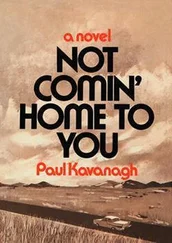

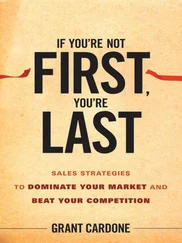

![Майкл Азеррад - Come as you are - история Nirvana, рассказанная Куртом Кобейном и записанная Майклом Азеррадом [litres]](/books/392533/majkl-azerrad-come-as-you-are-istoriya-nirvana-ra-thumb.webp)



